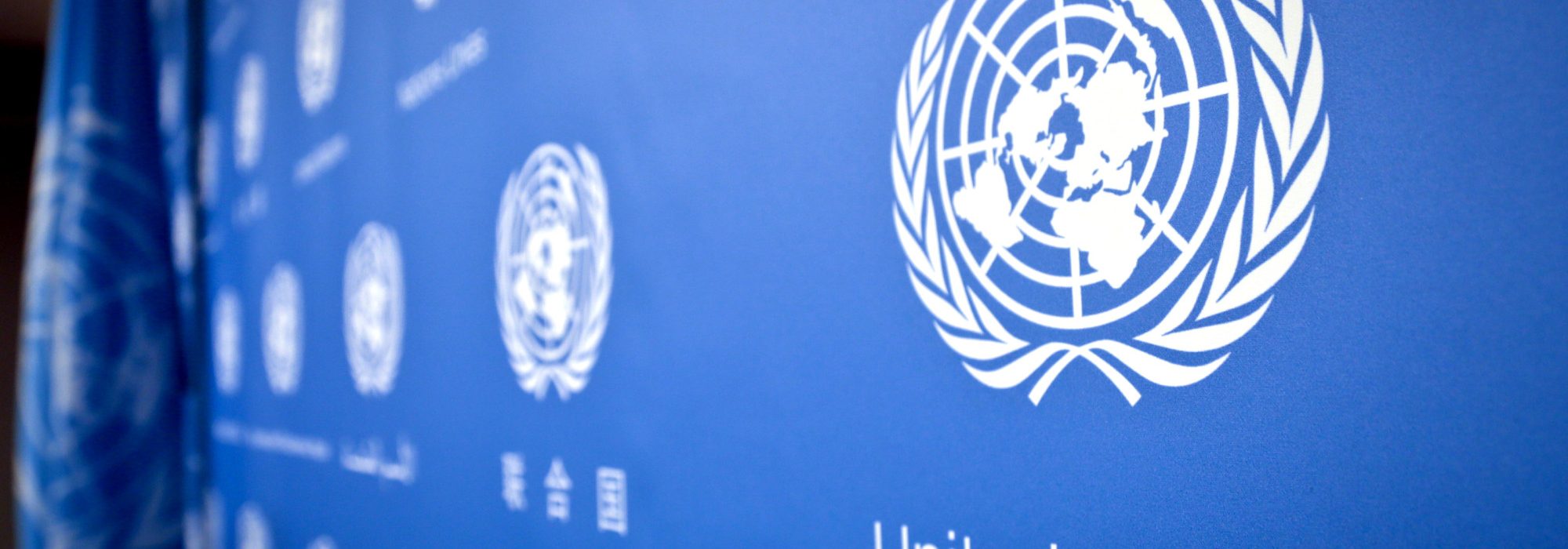May 9, 2018 // World News
Faith groups care for refugees in ways governments can’t, group tells U.N.
UNITED NATIONS (CNS) — Faith-based organizations are uniquely able to care for migrants and refugees because they employ a holistic, person-centered approach that respects the human dignity of each individual, and they have established networks throughout the world, according to panelists at a May 3 United Nations event.
Archbishop Bernardito Auza, permanent observer of the Holy See to the United Nations, said faith-based organizations provide “much of the infrastructure for immediate and long-term hospitality and accommodation, defend the rights and dignity of refugees and migrants independent of legal status, ensure through education, professional and social inclusion that they are able to achieve their potential as human beings, and enrich them and the societies that embrace them through the exchange of talents and culture.”
They are unique in their reach and presence at all points of the migratory journey, often filling gaps in services to migrants that governments and other civil society groups are incapable or unwilling to fill on their own, he said.
Archbishop Auza said six of the nine agencies that assist the U.S. State Department in resettling refugees in 190 communities throughout the U.S. are faith-based organizations. They are motivated by faith but granted resettlement responsibilities by the government because of their proven effectiveness, he said.
Speakers at the interreligious event described shared religious and ethical beliefs that inspire faith-based organizations to champion the rights of migrants and encourage good behavior by displaced people and the communities that host them. They pointed to the experiences of Abraham, Moses, Jesus and the prophet Muhammad as examples of forced migration.
“Migration is about human persons,” said Cardinal Luis Antonio Tagle, Archbishop of Manila and president of Caritas Internationalis.
“I have observed that some people who are afraid of migrants or refugees have had very little personal encounter with them. They do not even know the people they fear. By meeting them, touching their wounds, listening to their stories and dreams, we might see ourselves in them. They are not strangers. They could be me, my parents, my brothers and sisters, my friend,” he said.
Cardinal Tagle described his Chinese grandfather’s migration to the Philippines as a child. “I have migrant DNA. I am sure you do too,” he said.
Pope Francis has called “for a culture of personal encounter with migrants, refugees and people excluded by contemporary society,” Cardinal Tagle said. They should be offered safety, welcome, protection, promotion of their integral human development, and integration into society, according to Pope Francis’s guiding principles, he said.
Rabbi David Rosen, director of the American Jewish Committee, said the Bible specifically commands people “to love and empathize with others who seek to dwell within our community.” Although societies have a duty to protect their own citizens, they must also enable safe and secure passage for those on the move and ensure a decent living and social conditions for refugees and migrants, he said.
People do not leave their homes for pleasure. They do so because they are forced by circumstances, according to Mohammed Abu Zaid, senior judge of the Sunni Family Court of Saida, Lebanon. In the Islamic tradition, the migrant is required to respect and cooperate with the host community and not challenge it, he said. The hosts, even if poor, are bound to share with migrants.
Gijun Sugitani said global networks connect religious leaders in countries of origin and countries of destination. They should be used for the protection of refugees and the promotion of interfaith dialogue to ease frictions caused by cultural and religious differences between refugees’ homelands and their new homes. Sugitani is supreme advisor to the Tendai Buddhism sect and chairman of Religions for Peace Japan.
Faith-based organizations can foster better inclusion of migrants through language courses, local contacts, and mediation, said Metropolitan Emmanuel Adamakis of France. “Interfaith dialogue should contribute to a better understanding of the other, by rehumanizing the other and thus promoting human dignity and freedom,” he said.
“We cannot separate our concern for human dignity, human rights or social justice from our concern for peace and sustainability,” Metropolitan Emmanuel said. “The great religious traditions all emphasize the dignity of each person and the unity and common destiny of the entire human race in our common home. Accordingly, each faith calls upon individuals and communities to welcome, assist, and protect the refugees, migrants, and the displaced in our midst.”
Reverend Rachel Carnegie, co-executive director of the Anglican Alliance, said the current United Nations discussion about a global compact on safe, orderly and regular migration “is less about subtle negotiations or words and phrases, and more fully about real people’s lives and embracing with great vision this once-in-a-generation opportunity to shape cooperative action … in response to the mass movements of peoples.” The event, “Sharing the Journey of Migrants and Refugees: An Interfaith Perspective on the Global Compacts” was co-sponsored by the Permanent Observer Mission of the Holy See and Caritas Internationalis.
The best news. Delivered to your inbox.
Subscribe to our mailing list today.






